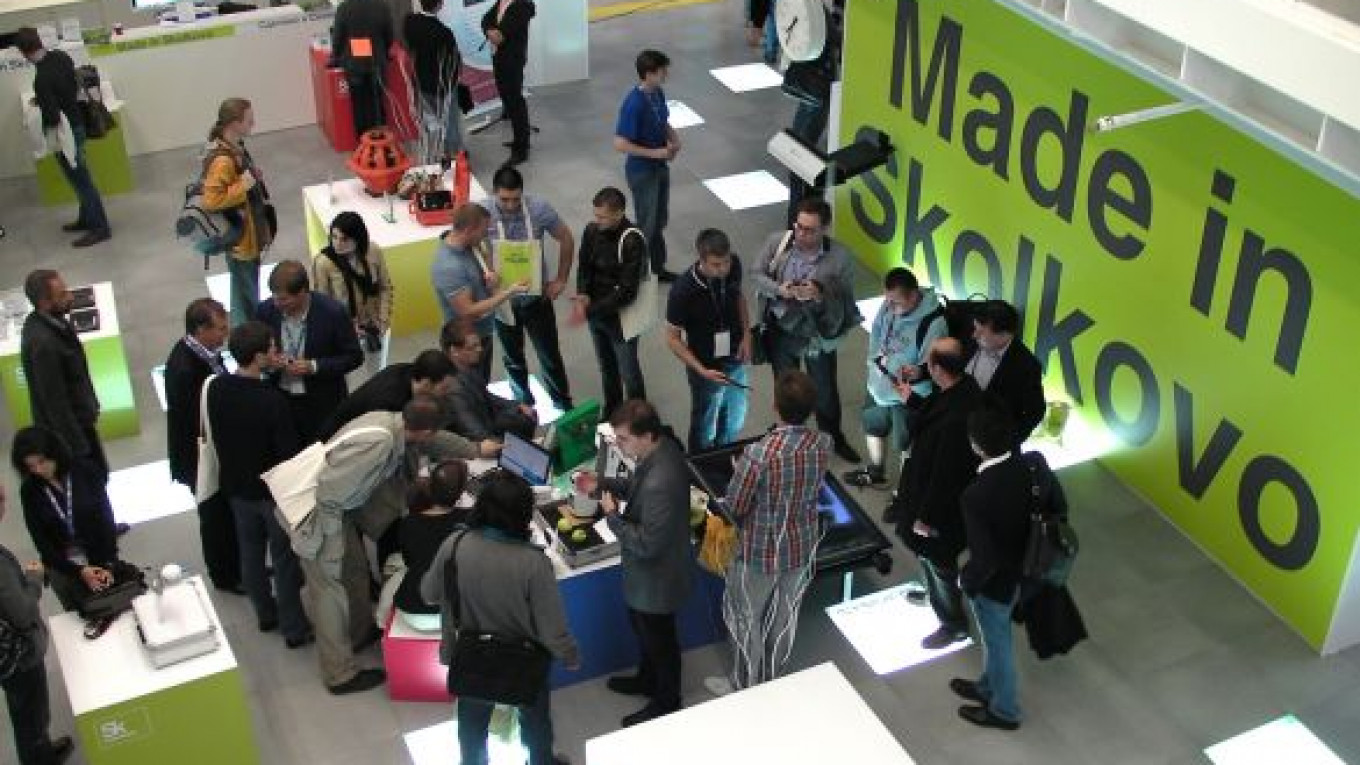President Vladimir Putin relieved state companies from making compulsory contributions to the Skolkovo University of Science and Technology, or Skoltech, endowment fund, established last year by his predecessor Dmitry Medvedev, Vedomosti reported Monday.
Putin annulled Medvedev's directive requiring state companies to contribute one percent of their innovation development budget or 0.5 to 3 percent of annual net profit to the endowment fund, created to support scientific research in the university. It was estimated that in the first three years, the fund would accumulate 30 billion rubles ($913 million).
Putin's spokesman Dmitry Peskov said, however, that state companies are welcome to finance the university voluntarily. Medvedev's spokeswoman, Natalya Timakova declined to comment.
A government source told Vedomosti that last year state companies only contributed 4 billion rubles ($122 million) and that there were no contributions in 2013.
Some state companies told Putin that they did not see any benefit in contributing to the fund because the program did not give them any voting rights or even a possibility to order research or specialist training. "This is why everybody decided to develop innovation privately. Payments to Skoltech became more like tax, rather than investment," a manager at an unnamed state company said.
Alexei Sitnikov, Skoltech's vice president for institutional and resource development, told The Moscow Times that he was not aware of any complaints received from the fund donors.
"It is difficult to respond to that statement because we don't know which company made it," Sitnikov said. "I don't know of anyone who donated and was not able to order research or training," he added.
Sitnikov said that so far the feedback from the industry was very positive.
Another state official told Vedomosti that Skoltech financing was on hold because the project was not as effective as planned.
"It's a little too soon to say whether it's effective or not," Sitnikov said in response to the newspaper report. "The institute is a little more than one year old. Let us create programs, employ professors and attract students, and then we can talk about whether it is effective or not."
Igor Yurgens, head of the liberal Institute for Contemporary Development think tank, described the developments as another way for Putin to distance himself from Skolkovo.
Contact the author at g.moukine@imedia.ru
Related articles:
A Message from The Moscow Times:
Dear readers,
We are facing unprecedented challenges. Russia's Prosecutor General's Office has designated The Moscow Times as an "undesirable" organization, criminalizing our work and putting our staff at risk of prosecution. This follows our earlier unjust labeling as a "foreign agent."
These actions are direct attempts to silence independent journalism in Russia. The authorities claim our work "discredits the decisions of the Russian leadership." We see things differently: we strive to provide accurate, unbiased reporting on Russia.
We, the journalists of The Moscow Times, refuse to be silenced. But to continue our work, we need your help.
Your support, no matter how small, makes a world of difference. If you can, please support us monthly starting from just $2. It's quick to set up, and every contribution makes a significant impact.
By supporting The Moscow Times, you're defending open, independent journalism in the face of repression. Thank you for standing with us.
Remind me later.






